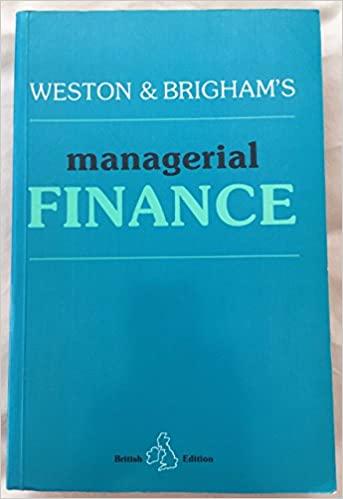Question
According to the semi-strong form of the efficient market hypothesis, stock prices reflect all publicly-available information. Therefore, investors should not be able to earn excess
According to the semi-strong form of the efficient market hypothesis, stock prices reflect all publicly-available information. Therefore, investors should not be able to earn excess returns by trading on public information. Nevertheless, trillions of dollars are invested with active fund managers whose mission is to generate these excess. Passive investments, on the other hand, offer investors the opportunity to simply be the market" not "beat the market".
Imagine you have started a career as a financial advisor and one of your clients wishes to start saving for retirement. Your client has asked you to answer the following questions:
1) Explain the difference between active fund management and passive fund management.
2) What is the argument for investing in actively managed mutual funds?
3) What is the argument for investing in passively managed mutual funds?
4) I am planning to save $500 per month for retirement. Do you recommend that I invest in actively managed funds or passively managed funds? Please explain your recommendation.
Before you meet with your client, you will need to do a bit of research on active and passive investments. To strengthen your arguments to your client, make sure to include evidence from at least two articles. Please cite the articles you read.
Step by Step Solution
There are 3 Steps involved in it
Step: 1

Get Instant Access to Expert-Tailored Solutions
See step-by-step solutions with expert insights and AI powered tools for academic success
Step: 2

Step: 3

Ace Your Homework with AI
Get the answers you need in no time with our AI-driven, step-by-step assistance
Get Started


